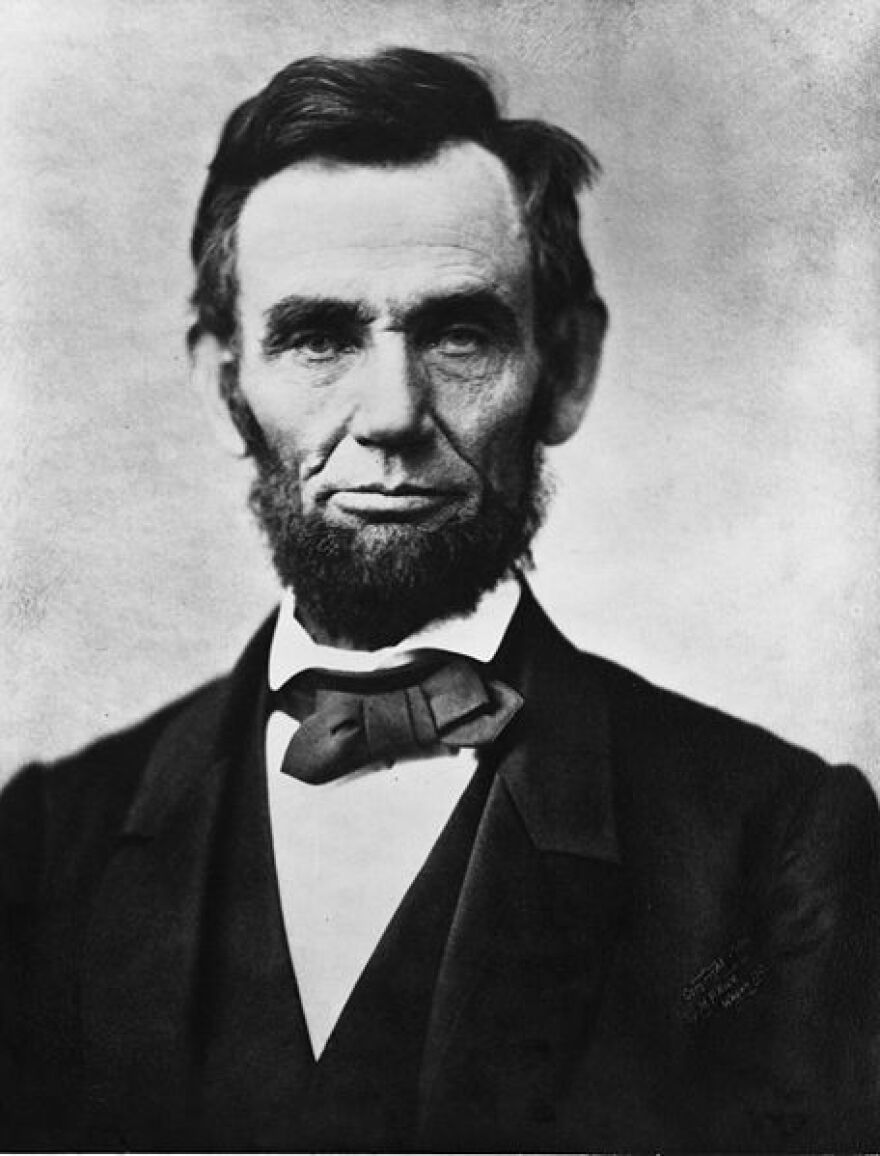By Todd Hatton
http://stream.publicbroadcasting.net/production/mp3/wkms/local-wkms-953247.mp3
Murray, KY – We continue our ongoing look back at the U.S. Civil War in the Commonwealth. On today's Kentucky Civil War Dispatch, America's incoming 16th president heads to Washington, and begins his efforts to hold the country together even before he's sworn in.
On this date in 1861, Abraham Lincoln of Illinois was traveling by train to Washington, where he was to be inaugurated as the 16th president of the United States on March 4.
He gave speeches in several cities along the way, including Cincinnati on Feb. 12, his 52nd birthday. Lincoln aimed most of his words at his native Kentucky, just across the Ohio River from the Queen City. He hoped to hold Kentucky and seven other slave states in the Union.
Seven Deep South slave states had already seceded and were forming the Confederate States of America with Jefferson Davis of Mississippi as president. Davis was born in Fairview, Kentucky in 1808.
Parts of Lincoln's Cincinnati speech were published in The New York Times on Feb. 13. According to the newspaper, the president-elect told the audience that he had spoken in their city "a year previous to the late Presidential election." He reminded them that he focused that address on Kentuckians, too.
Lincoln recalled his prediction that his party would win the presidency in 1860. He also said he had promised the victorious Republicans would leave them alone, and in no way interfere with slavery.
Lincoln added: "We mean to remember that you are as good as we; that there is no difference between us other than the difference of circumstances. We mean to recognize and bear in mind always that you have as good hearts in your bosoms as other people, or as we claim to have, and treat you accordingly.'"
He concluded: "Fellow-citizens of Kentucky! -- Friends and brethren may I call you in my new position -- I see no occasion and feel no inclination to retract a word of this. If it shall not be made good, be assured the fault shall not be mine."
The Times reported that Lincoln's "remarks were received with great enthusiasm. In passing to his room those that could rushed at him, throwing their arms around him, patting him on the back, and almost wrenching his arms off." Even so, John Jeffrey of Lexington, who heard Lincoln's speech, was singularly unimpressed.
He wrote his brother a letter, which William H. Townsend quoted in his book, Lincoln and the Bluegrass: "Old Abe looks, talks & acts just as you may have seen some long, slab sided flat boat Capting,' who had sold his prodooce' in Memphis & invested 12$ at a slop shop tailor's in rigging himself out for Sunday. He is a disgrace as the head boss of any civilized nation."
WKMS produces Kentucky Civil War Dispatches from West Kentucky Community and Technical College history professor Berry Craig. He's the author of Hidden History of Kentucky in the Civil War and True Tales of Old-Time Kentucky Politics: Bombast, Bourbon, and Burgoo.

